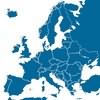Last week, in front of a crowd of journalists in Vyborg, Russia, Vladimir Putin sat at a desk and inaugurated a major new gas pipeline to Germany with a banal, 21st-century gesture: He clicked something on a computer screen.
The Nord Stream pipeline is Russia’s first direct gas link to Europe, and, by next year, it should bring enough gas to the EU to generate the energy “of 11 nuclear power plants,” Putin boasted.
It was a reference to German energy policy, but Angela Merkel wouldn’t have smiled. When the Fukushima disaster pushed her to make the quick decision this summer to shutter all German nuclear power plants by 2022, Merkel had to swallow a measure of pride. Russian gas is not her favorite topic; she doesn’t entirely trust Russia, or the state-run monopoly Gazprom, to provide a reliable stream of natural gas.
The point of the new pipeline is to carry gas along the Baltic Sea* floor, from western Russia to the German coast, without crossing Eastern Europe. Transit fees for Russian oil and gas are good business for Eastern countries like Ukraine and Poland, which howled when Germany and Russia announced the project in 2005. And within months of that announcement, Gazprom started to strong-arm Ukraine with macabre, mafia-like tactics.

Michael Scott Moore complements his standing feature in Miller-McCune magazine with frequent posts on the policy challenges and solutions popping up on the other side of the pond.
Gazprom has cut gas to Ukraine twice in the depth of winter — once in 2006, again in 2009 — ostensibly over billing disputes, to either increase prices or end barter-based payment. In 2009, supposedly by accident, some paid-up nations in Western Europe suffered gas shortages and some Ukrainians went without heat. But by then columnist William Pfaff had already observed that the crisis was more than just a power struggle between Moscow and its former Soviet allies. “More important for Vladimir Putin is that … Western clients now are on notice that Russia’s gas exports do not come with a guarantee,” he wrote. “They come with a threat.”
This history was forgotten in most of last week’s news pieces about Nord Stream, which quoted Putin about Ukraine’s (alleged) abuses of control over some transit routes. “As with any transit country, they have the temptation to benefit from their position,” he told journalists. “Now this exclusivity is disappearing, and I believe that our relations will take on a more civilized character.”
Merkel knows better than to trust everything Putin says. Overcoming her instinctive distaste for German dependence on Russian gas is one of the major compromises in her decision to phase out nuclear energy.
Her predecessor Gerhard Schröder in 2005 billed Nord Stream as a way to keep Western Europe unaffected by squabbles between Russia and Eastern Europe. “It now becomes the only option available in the next five years as Germany moves away from nuclear power,” write the analysts at the global intelligence firm Stratfor.
Germany can dig its own coal, and it does plan to open more coal-fired power plants. But burning too much would destroy its own (and the European Union’s) targets for cutting emissions. That’s one of the perceived benefits of using natural gas – it’s lower carbon footprint. But even the “cleanest fossil fuel” is not necessarily clean, as a report earlier this year by the U.S. Environmental Protection Agency pointed out. Methane is a greenhouse-gas emission all by itself, more potent by far than carbon dioxide, though it’s safe as long as it moves through sealed pipes.
Traditional gas drilling and piping is far from leak-proof.
“Billions of cubic feet of climate-changing greenhouse gases-roughly the equivalent of the annual emissions from 35 million automobiles-seep from loose pipe valves or are vented intentionally from gas production facilities into the atmosphere each year,” writes ProPublica‘s Abrahm Lustgarten. “Gas drilling emissions alone account for at least one-fifth of human-caused methane in the world’s atmosphere.”
When it comes to building an energy policy, from Angela Merkel’s perspective, those would be Russia’s problems — not Germany’s.
*This article originally and incorrectly said the pipeline ran on the floor of the North Sea.
Sign up for the free Miller-McCune.com e-newsletter.
“Like” Miller-McCune on Facebook.
Follow Miller-McCune on Twitter.
Add Miller-McCune.com news to your site.




